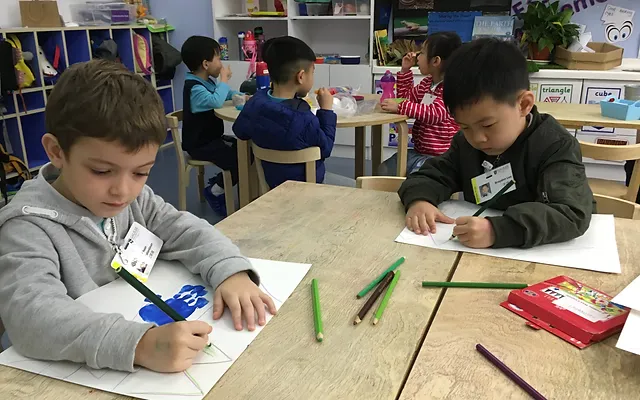
The Process of International Kindergarten Application
Proper preparation is important when applying for an international kindergarten. It is in this process that parents make decisions on many aspects. Each part contributes to defining the educational process of the child. It is why knowing the application journey is beneficial to the families, enabling them to make necessary navigation.
The application process in an international kindergarten
Timeline planning
international kindergarten application timing forms the basis of success. Many schools start admitting students to the intended classes one year in advance. Critical milestones must be respected. In different schools, there are other times of observing the calamities. Procrastination leads to a work rush, while early preparation leads to a much more comfortable working time. Calendar planning aids in the process.
Research and school selection
School research means that the investigation has to be very scientific. Ideologies vary from one institution to another. There are great differences in approaches to curriculum. Closeness to location has to be taken into account. There is an understanding that school reputations dictate choices. Virtual tours provide the first impression.
Documentation requirements
Document preparation is one of the important processes that must be completed. Birth certificates must be legitimized. Certification is required on copies of passports. A medical record needs to be updated. Old school reports could be helpful. Family information requires structure.

Application form completion
Application forms require consideration. The content of personal information must be correct. Information about family backgrounds has to be presented as clearly as possible. Anyone with emergency contacts wants to ensure they are reachable. Preferred programs require definition. Form submissions come with due dates.
Awareness of the assessment process
Different schools evaluate children in various ways. Observations through play are not rare at all. Social skills get the assessment. Some of the developmental tests carried out are simple. Language skills have some focus. Child appropriate measures dominate.
Language requirements
Language policies define how education approaches should be. Fluency in English differs from one learner to the other, which raises the question of mother tongue support. There are sometimes bilingual programs, though. Language development gets attention. Interpersonal skills are relevant more than anything else.
Uniform and materials
Something as simple as uniform requirements must be given some thought. School supplies lists exist. More resources are required for purchase. Like any system, storage solutions need to be planned for. Label requirements should be given some attention. Cost considerations matter.
Parents’ engagement comprehension
The level of parents’ participation is not the same. Communication methods differ. Attendance at an event earns consideration. Volunteer work is available. This research reveals that the level of community participation is important. The formation of partnerships contributes to success.
Transition planning
Therefore, children have to be made to understand that transition preparation is best. School visits help avail yourself of the facilities and are thus an act of familiarization. Teacher meetings get the picture. Classroom orientation is done in stages. The culture of making friends is encouraged. Routine establishment helps.
Summarizing
The application process for an international kindergarten needs some seriousness and formality. Education processes start favorably. Global citizens, therefore, are nurtured over time. Communities like to learn and welcome new members. Education quality, on the other hand, is still the vision.

